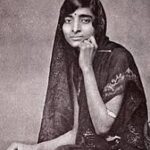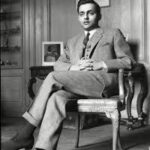Gangadhar Nehru: A Life of Strength and Legacy
Gangadhar Nehru, though often overshadowed by the extraordinary political achievements of his son, Jawaharlal Nehru, holds a significant place in Indian history. His life and contributions shaped the foundation of an intellectual and socially-conscious family that played a pivotal role in India’s independence. As the father of Jawaharlal Nehru, Gangadhar Nehru’s impact extended beyond just family ties. He was a man of principles and a devoted public servant who laid the groundwork for many important social and political movements.
Early Life and Education
Gangadhar Nehru was born in the early 19th century, in the city of Kashmir. He hailed from a respectable family with a rich cultural and intellectual heritage. His father, Motilal Nehru, was an influential lawyer, and his mother, Jankibai, came from a family with strong educational values. These early influences helped shape Gangadhar’s future, as he grew up with a deep respect for culture, social justice, and political engagement.
While much of his early life is not widely documented, it is clear that Gangadhar Nehru had a strong education, rooted in the traditional values of his time. His commitment to learning and social welfare became apparent when he decided to pursue a career in the public sector. He became a respected figure in his community for his ability to balance his professional and social responsibilities.
Professional Life and Contributions
Gangadhar Nehru was a well-respected lawyer who earned recognition for his knowledge of law and social issues. He worked as a public servant, providing legal assistance and guidance to people in need. His strong understanding of legal frameworks helped him influence key social reforms of his time, especially in the areas of education, public service, and social equality.
One of Gangadhar Nehru’s most notable achievements was his emphasis on the importance of education for all. In an era when education was not widely accessible, he was a vocal advocate for spreading literacy, especially among the underprivileged. His belief in the transformative power of education played an important role in shaping his children’s values, notably that of his son, Jawaharlal Nehru, who would later lead the country to independence.
Gangadhar Nehru was a man who understood the power of intellectual growth and the role that education played in the development of both individuals and society. His work in the legal field and his influence in shaping policy around education marked him as an important figure in the Indian reform movement.
Gangadhar Nehru’s Role in Social Movements
Though not directly involved in political movements like his son, Gangadhar Nehru still held deep convictions about social justice and national progress. He was a supporter of the Indian National Congress and was keenly interested in the movement for social reform. In his day, Gangadhar Nehru was instrumental in pushing for reforms that focused on the abolition of untouchability, promoting women’s rights, and fostering unity among the diverse communities of India.
Gangadhar’s support for national causes like civil rights and social equality showed his belief that political reform was inseparable from social progress. His social ideas would later be carried forward by his son, Jawaharlal, whose influence on India’s independence and social reforms was monumental.
Personal Life and Family Impact
Gangadhar Nehru was not just a public figure but also a devoted family man. He married Swaroop Rani, and together they had several children, with Jawaharlal Nehru being their most famous child. Gangadhar was a loving and caring father, and his relationship with Jawaharlal was one built on respect and mutual admiration. Though not directly involved in the independence struggle, Gangadhar’s unwavering support for his son’s ambitions and values greatly influenced Jawaharlal’s development.
Gangadhar was known for his strong moral principles and sense of integrity. He passed on these values to his children, especially Jawaharlal, who would go on to become a prominent leader in India’s struggle for independence. His personal life is often remembered as one that balanced family responsibility with an unwavering commitment to social justice.
Legacy and Influence
While Gangadhar Nehru did not live to witness India’s independence, his legacy lived on through his son and the Nehru family’s continued influence on Indian politics. His devotion to the promotion of education, equality, and justice contributed to the broader Indian reform movement. His character and values resonated through Jawaharlal’s leadership and would be passed down to generations of Indians.
Gangadhar Nehru’s role in shaping his son’s worldview cannot be overstated. He laid the foundation for the intellectual and moral development that would later fuel Jawaharlal’s leadership of the Indian National Congress and his subsequent tenure as India’s first prime minister.
Significance in Modern India
The influence of Gangadhar Nehru can still be felt in modern India. His commitment to social equality, education, and intellectual development laid the groundwork for the nation’s democratic ideals. India’s emphasis on education, women’s empowerment, and social justice can be traced back to Gangadhar Nehru’s foundational contributions.
In today’s world, Gangadhar Nehru is remembered not just as the father of a great leader, but also as an individual who believed in the power of knowledge and equality to shape a better society.
Frequently Asked Questions (FAQs)
Q1: What was Gangadhar Nehru’s role in India’s freedom struggle?
Although Gangadhar Nehru was not directly involved in the independence movement, his support for social reforms and his dedication to education had a significant influence on his son’s political career and India’s eventual path to independence.
Q2: How did Gangadhar Nehru influence his son, Jawaharlal Nehru?
Gangadhar Nehru’s principles of justice, integrity, and education deeply influenced Jawaharlal Nehru. His focus on intellectual growth helped shape Jawaharlal’s character and his vision for a free, democratic, and modern India.
Q3: What contributions did Gangadhar Nehru make to Indian society?
Gangadhar Nehru’s contributions to legal reform, education, and social justice helped shape India’s early intellectual and social landscape. He was a passionate advocate for education, particularly for marginalized groups, and laid the groundwork for social equality.
Conclusion
Gangadhar Nehru’s life and contributions may not be as widely celebrated as those of his son, Jawaharlal, but his influence is deeply embedded in the foundation of modern India. His dedication to education, social equality, and justice created an enduring legacy that would shape Indian society for generations to come. Kamala Nehru’s life is an example of quiet but powerful dedication to social reform and personal integrity.










